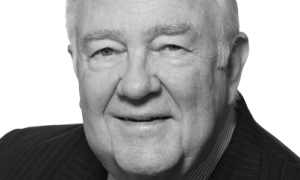During the 1980 Republican convention in Detroit, some Republican leaders - mostly from the East - were suggesting that Ronald Reagan should pick former President Gerald Ford as his running mate. Although Mr. Reagan doubted that this arrangement would work, there was sufficient support for what many called "the dream ticket" that he felt he should at least look into it. After he arrived on Monday, he asked William Casey, Richard Wirthlin and me to meet with three Ford representatives (Alan Greenspan, Henry Kissinger and Jack Marsh) to see if the proposal was feasible.
Although Mr. Ford gave an interview to Walter Cronkite on early Wednesday evening that made it appear that such an arrangement was imminent, by later that night it was clear to Mr. Ford and Mr. Reagan that the ticket was not to be.
That left us with two problems: picking a running mate and then overcoming the buzz at the convention that a deal with Mr. Ford was in place.
The first was easy to solve. Our campaign had vetted several potential running mates, and Mr. Reagan and I agreed that George H. W. Bush would be the best. Late that night, Mr. Reagan called Mr. Bush and asked him if he could support his policies and the Republican platform. Mr. Bush said he could, and Mr. Reagan asked him to join the ticket.
But Mr. Reagan knew that if the delegates left the convention hall on Wednesday night with the idea that a "dream ticket" with Mr. Ford was in the works, the announcement of Mr. Bush the next day would be a surprise to all and a disappointment to some. So Mr. Reagan, Bill Casey and I jumped into a car and drove from our hotel to the hall.
When we arrived after midnight, Mr. Reagan announced his choice for vice president. Because the delegates heard the news directly from him, they were delighted, and the rest of the convention - and the election - went smoothly for the Reagan-Bush team.
EDWIN J. MEESE III, the attorney general of the United States from 1985 to 1988
First appeared in the New York Times



